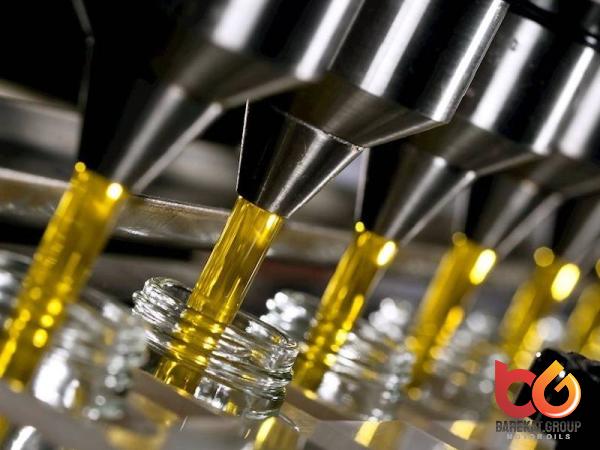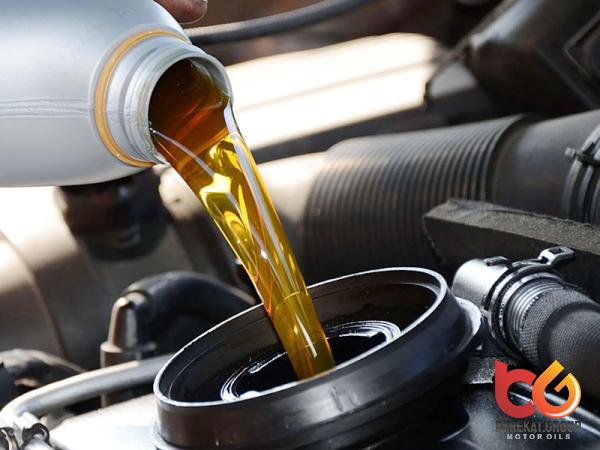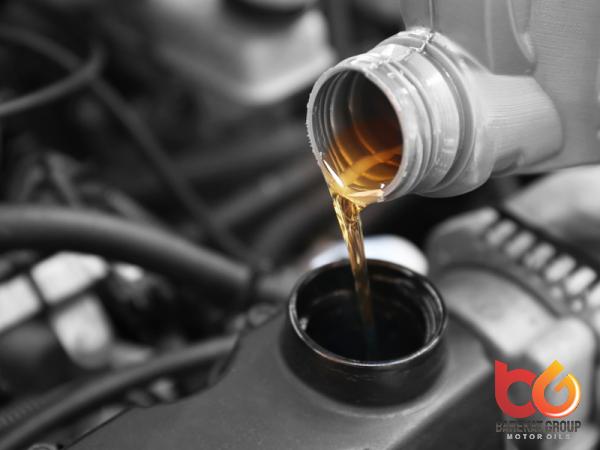Viscous lubricating oil, also known as high-viscosity lubricating oil, is an essential component in many industries, including automotive, manufacturing, and oil and gas. This type of oil is designed to reduce friction, heat, and wear in various types of machinery and equipment. It has unique properties that make it highly effective in applications where thick or high-viscosity fluid is required. Viscous lubricating oil is formulated to have a higher viscosity index than regular lubricating oil. Viscosity is a measure of a fluid’s resistance to flow, and the higher the viscosity, the thicker the oil. In the case of viscous lubricating oil, its high viscosity ensures that it maintains its thickness and effectiveness under different operating conditions, including extreme temperatures and heavy loads. One of the primary functions of viscous lubricating oil is to minimize friction and wear in moving parts. When machinery is in operation, there is constant contact between components, resulting in friction that can lead to heat generation and damage. Viscous lubricating oil acts as a buffer between these components, reducing friction and heat, and preventing wear and tear. By providing a protective film between moving surfaces, it helps to extend the lifespan and efficiency of the equipment. Another important property of viscous lubricating oil is its ability to resist thinning under high temperatures. When exposed to heat, many fluids tend to become less viscous, meaning they become thinner and offer reduced protection. However, viscous lubricating oil is specifically designed to maintain its viscosity even in extreme temperatures, ensuring that it continues to provide optimal lubrication and protection to the equipment it is applied to. Certain industries, such as automotive and heavy machinery, rely heavily on viscous lubricating oil to maintain the performance and longevity of their equipment.
Engine oil
 In the automotive industry, engines, transmissions, and differentials benefit greatly from the use of this type of oil. Since these components operate under high stress and temperature conditions, a high-viscosity oil is necessary to provide adequate lubrication and cooling to prevent damage and ensure smooth operation. Similarly, in the manufacturing industry, where heavy machinery is used extensively, viscous lubricating oil is used to reduce friction and wear in the moving parts of machines. This enhances the efficiency and reliability of the equipment, reducing the need for frequent maintenance and repairs. Oil and gas exploration and production is another industry where viscous lubricating oil plays a critical role. The extraction of oil and gas involves complex machinery and drilling equipment that operate under extreme conditions, such as high temperatures and pressures. Using high-viscosity lubricating oil ensures the smooth functioning of these equipment components, preventing premature failure and minimizing downtime. In addition to its lubricating properties, viscous oil also serves as a coolant in certain applications. When equipment generates heat during operation, the oil helps in dissipating the heat, preventing overheating and potential damage to the machinery. This is particularly important in applications such as metalworking, where the heat generated during cutting or grinding processes needs to be effectively managed. When selecting a viscous lubricating oil, it is crucial to consider the specific requirements of the application and the manufacturer’s recommendations. Factors such as operating temperature range, load capacity, and compatibility with seals and materials must be taken into account to ensure optimal performance and longevity of the equipment.
In the automotive industry, engines, transmissions, and differentials benefit greatly from the use of this type of oil. Since these components operate under high stress and temperature conditions, a high-viscosity oil is necessary to provide adequate lubrication and cooling to prevent damage and ensure smooth operation. Similarly, in the manufacturing industry, where heavy machinery is used extensively, viscous lubricating oil is used to reduce friction and wear in the moving parts of machines. This enhances the efficiency and reliability of the equipment, reducing the need for frequent maintenance and repairs. Oil and gas exploration and production is another industry where viscous lubricating oil plays a critical role. The extraction of oil and gas involves complex machinery and drilling equipment that operate under extreme conditions, such as high temperatures and pressures. Using high-viscosity lubricating oil ensures the smooth functioning of these equipment components, preventing premature failure and minimizing downtime. In addition to its lubricating properties, viscous oil also serves as a coolant in certain applications. When equipment generates heat during operation, the oil helps in dissipating the heat, preventing overheating and potential damage to the machinery. This is particularly important in applications such as metalworking, where the heat generated during cutting or grinding processes needs to be effectively managed. When selecting a viscous lubricating oil, it is crucial to consider the specific requirements of the application and the manufacturer’s recommendations. Factors such as operating temperature range, load capacity, and compatibility with seals and materials must be taken into account to ensure optimal performance and longevity of the equipment.
Specifications of Engine oil
 In conclusion, viscous lubricating oil is a vital component in various industries, providing essential lubrication and protection to machinery and equipment. Its high viscosity ensures that it maintains its effectiveness under extreme operating conditions, reducing friction, heat, and wear. By using high-viscosity oil, industries can enhance the efficiency and durability of their equipment, reducing maintenance costs and improving overall operational performance.Viscous Lubricating Oil: Enhancing Machinery Efficiency and Reliability I. Introduction Viscous lubricating oil plays a pivotal role in various industries by providing essential lubrication and protection to machinery and equipment. This article explores the importance of viscous lubricating oil and its unique properties that make it highly effective in reducing friction, heat, and wear in different applications. II. The Purpose of Viscous Lubricating Oil Viscous lubricating oil is specifically designed to minimize friction and wear in moving parts of machinery. It acts as a barrier, creating a protective film between surfaces, reducing the contact and minimizing damage. By reducing friction, high-viscosity oil helps extend the lifespan and efficiency of equipment, reducing the need for frequent repairs and maintenance. III. Applications in the Automotive Industry The automotive industry heavily relies on viscous lubricating oil to maintain the performance and longevity of engines, transmissions, and differentials. These components operate under high-stress conditions and require a high-viscosity oil to provide adequate lubrication, cooling, and protection against wear and tear. Viscous oil ensures smooth operation and prevents premature failure, reducing costly repairs. IV. Role in the Manufacturing Industry In the manufacturing industry, where heavy machinery is extensively used, viscous lubricating oil is essential.
In conclusion, viscous lubricating oil is a vital component in various industries, providing essential lubrication and protection to machinery and equipment. Its high viscosity ensures that it maintains its effectiveness under extreme operating conditions, reducing friction, heat, and wear. By using high-viscosity oil, industries can enhance the efficiency and durability of their equipment, reducing maintenance costs and improving overall operational performance.Viscous Lubricating Oil: Enhancing Machinery Efficiency and Reliability I. Introduction Viscous lubricating oil plays a pivotal role in various industries by providing essential lubrication and protection to machinery and equipment. This article explores the importance of viscous lubricating oil and its unique properties that make it highly effective in reducing friction, heat, and wear in different applications. II. The Purpose of Viscous Lubricating Oil Viscous lubricating oil is specifically designed to minimize friction and wear in moving parts of machinery. It acts as a barrier, creating a protective film between surfaces, reducing the contact and minimizing damage. By reducing friction, high-viscosity oil helps extend the lifespan and efficiency of equipment, reducing the need for frequent repairs and maintenance. III. Applications in the Automotive Industry The automotive industry heavily relies on viscous lubricating oil to maintain the performance and longevity of engines, transmissions, and differentials. These components operate under high-stress conditions and require a high-viscosity oil to provide adequate lubrication, cooling, and protection against wear and tear. Viscous oil ensures smooth operation and prevents premature failure, reducing costly repairs. IV. Role in the Manufacturing Industry In the manufacturing industry, where heavy machinery is extensively used, viscous lubricating oil is essential.
Buy Engine oil
 It reduces friction and wear in the moving parts of machines, enhancing their efficiency and reliability. By using high-viscosity oil, manufacturers can minimize downtime, lower maintenance costs, and improve overall operational performance. V. Oil and Gas Exploration and Production Viscous lubricating oil plays a critical role in the oil and gas industry, particularly in drilling and extraction processes. The complex machinery and drilling equipment used in these operations operate under extreme conditions, such as high temperatures and pressures. High-viscosity oil ensures smooth functioning, preventing equipment failure, and minimizing downtime. VI. Heat Dissipation and Cooling Viscous lubricating oil not only provides lubrication but also serves as a coolant in certain applications. When machinery generates heat during operation, the oil helps dissipate the heat, preventing overheating and potential damage. Industries like metalworking benefit greatly from the cooling properties of high-viscosity oil, ensuring efficient heat management during cutting or grinding processes. VII. Selecting the Right Viscous Lubricating Oil Choosing the appropriate viscous lubricating oil requires considering the specific requirements of the application and adhering to manufacturer recommendations. Factors such as operating temperature range, load capacity, and compatibility with seals and materials must be evaluated to ensure optimal performance and longevity of the equipment. VIII. The Role of Additives in Viscous Lubricating Oil Additives are often incorporated into viscous lubricating oils to enhance their performance.
It reduces friction and wear in the moving parts of machines, enhancing their efficiency and reliability. By using high-viscosity oil, manufacturers can minimize downtime, lower maintenance costs, and improve overall operational performance. V. Oil and Gas Exploration and Production Viscous lubricating oil plays a critical role in the oil and gas industry, particularly in drilling and extraction processes. The complex machinery and drilling equipment used in these operations operate under extreme conditions, such as high temperatures and pressures. High-viscosity oil ensures smooth functioning, preventing equipment failure, and minimizing downtime. VI. Heat Dissipation and Cooling Viscous lubricating oil not only provides lubrication but also serves as a coolant in certain applications. When machinery generates heat during operation, the oil helps dissipate the heat, preventing overheating and potential damage. Industries like metalworking benefit greatly from the cooling properties of high-viscosity oil, ensuring efficient heat management during cutting or grinding processes. VII. Selecting the Right Viscous Lubricating Oil Choosing the appropriate viscous lubricating oil requires considering the specific requirements of the application and adhering to manufacturer recommendations. Factors such as operating temperature range, load capacity, and compatibility with seals and materials must be evaluated to ensure optimal performance and longevity of the equipment. VIII. The Role of Additives in Viscous Lubricating Oil Additives are often incorporated into viscous lubricating oils to enhance their performance.
Engine oil + buy and sell
 These additives can provide additional benefits such as improved wear protection, corrosion resistance, and enhanced thermal stability. Evaluating the right combination of additives is crucial to tailor lubricating oil to specific application needs. IX. Maintaining and Monitoring Viscous Lubricating Oil Regular maintenance and monitoring of viscous lubricating oil are essential to ensure optimal performance and prolong equipment life. This includes monitoring oil quality, conducting regular analysis and testing, and adhering to recommended oil change intervals. By following proper maintenance practices, businesses can maximize the benefits of high-viscosity lubricating oil. X. Environmental Considerations While viscous lubricating oil offers numerous benefits in terms of machinery performance and longevity, there is a growing focus on environmental considerations. It is important for businesses to select lubricating oils that adhere to environmental standards and regulations to minimize their ecological impact. This includes using oils with minimal toxins, considering biodegradable options, and implementing proper disposal practices. XI. The Future of Viscous Lubricating Oil As technology advances, the demand for high-performance lubricating oils continues to grow. The future of viscous lubricating oil lies in the development of more advanced formulations that offer improved performance, durability, and environmental sustainability. With ongoing research and innovation, businesses can expect even greater efficiency and reliability from high-viscosity lubricating oils in the years to come. XII. Conclusion Viscous lubricating oil is a critical component in various industries, providing essential lubrication and protection to machinery and equipment. Its unique properties, such as high viscosity and heat resistance, make it highly effective in reducing friction, heat, and wear. By utilizing high-viscosity oil, businesses can enhance the efficiency, reliability, and longevity of their equipment, resulting in improved operational performance and reduced maintenance costs.
These additives can provide additional benefits such as improved wear protection, corrosion resistance, and enhanced thermal stability. Evaluating the right combination of additives is crucial to tailor lubricating oil to specific application needs. IX. Maintaining and Monitoring Viscous Lubricating Oil Regular maintenance and monitoring of viscous lubricating oil are essential to ensure optimal performance and prolong equipment life. This includes monitoring oil quality, conducting regular analysis and testing, and adhering to recommended oil change intervals. By following proper maintenance practices, businesses can maximize the benefits of high-viscosity lubricating oil. X. Environmental Considerations While viscous lubricating oil offers numerous benefits in terms of machinery performance and longevity, there is a growing focus on environmental considerations. It is important for businesses to select lubricating oils that adhere to environmental standards and regulations to minimize their ecological impact. This includes using oils with minimal toxins, considering biodegradable options, and implementing proper disposal practices. XI. The Future of Viscous Lubricating Oil As technology advances, the demand for high-performance lubricating oils continues to grow. The future of viscous lubricating oil lies in the development of more advanced formulations that offer improved performance, durability, and environmental sustainability. With ongoing research and innovation, businesses can expect even greater efficiency and reliability from high-viscosity lubricating oils in the years to come. XII. Conclusion Viscous lubricating oil is a critical component in various industries, providing essential lubrication and protection to machinery and equipment. Its unique properties, such as high viscosity and heat resistance, make it highly effective in reducing friction, heat, and wear. By utilizing high-viscosity oil, businesses can enhance the efficiency, reliability, and longevity of their equipment, resulting in improved operational performance and reduced maintenance costs.
Your comment submitted.